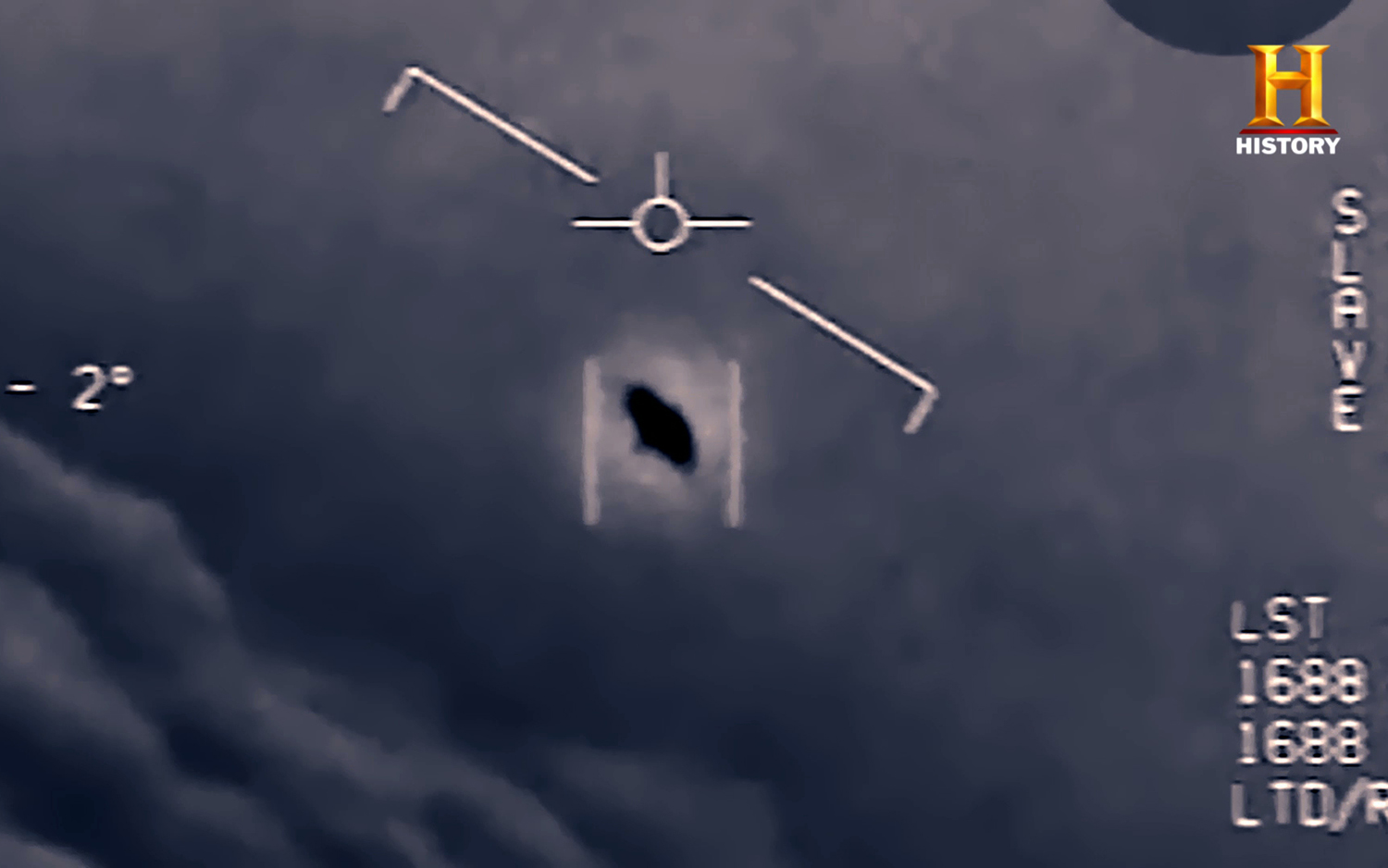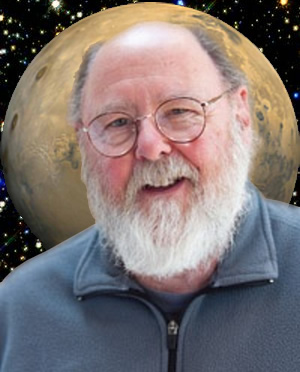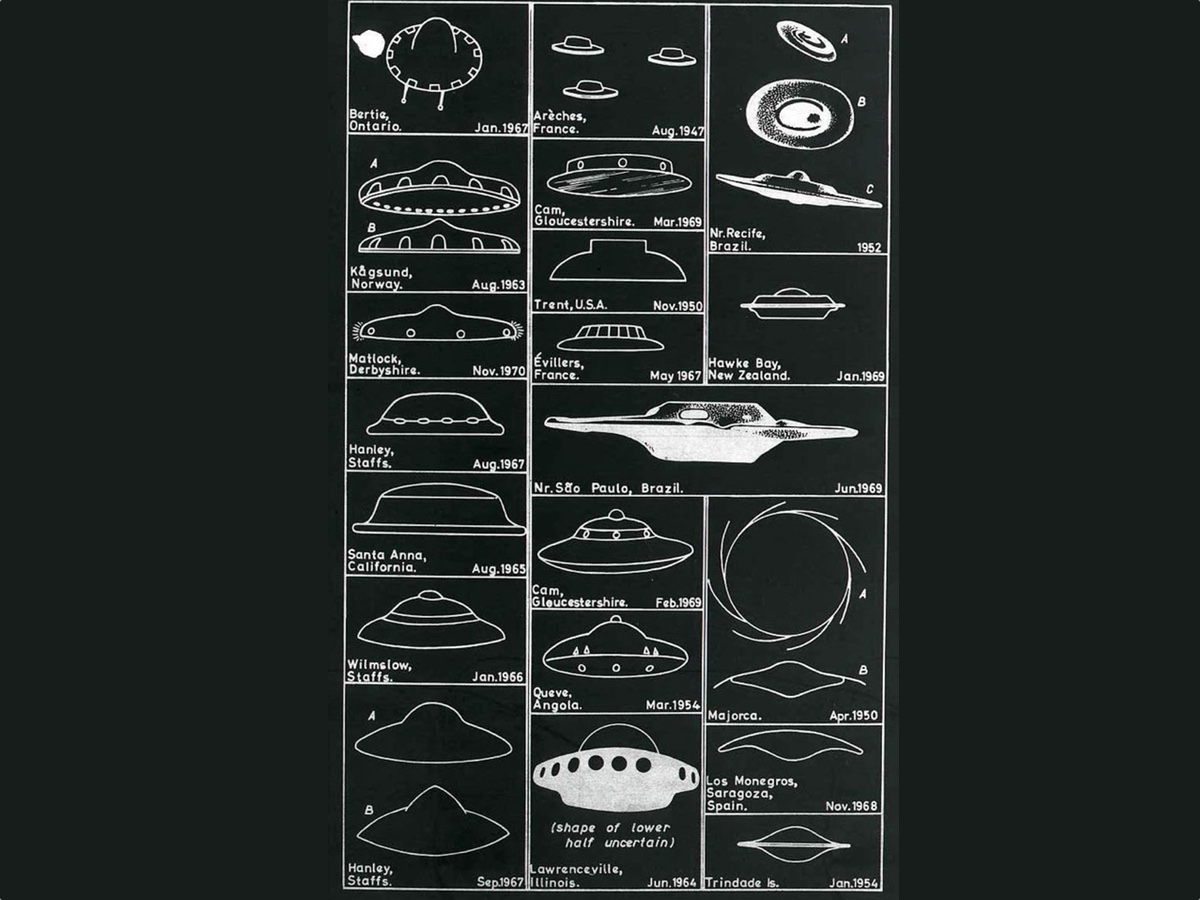UFOs Remain Elusive Despite Decades of Study

Get the world’s most fascinating discoveries delivered straight to your inbox.
You are now subscribed
Your newsletter sign-up was successful
Want to add more newsletters?

Delivered Daily
Daily Newsletter
Sign up for the latest discoveries, groundbreaking research and fascinating breakthroughs that impact you and the wider world direct to your inbox.

Once a week
Life's Little Mysteries
Feed your curiosity with an exclusive mystery every week, solved with science and delivered direct to your inbox before it's seen anywhere else.

Once a week
How It Works
Sign up to our free science & technology newsletter for your weekly fix of fascinating articles, quick quizzes, amazing images, and more

Delivered daily
Space.com Newsletter
Breaking space news, the latest updates on rocket launches, skywatching events and more!

Once a month
Watch This Space
Sign up to our monthly entertainment newsletter to keep up with all our coverage of the latest sci-fi and space movies, tv shows, games and books.

Once a week
Night Sky This Week
Discover this week's must-see night sky events, moon phases, and stunning astrophotos. Sign up for our skywatching newsletter and explore the universe with us!
Join the club
Get full access to premium articles, exclusive features and a growing list of member rewards.
In July, the Mutual UFO Network (MUFON) celebrates 50 years of investigating and promoting research on the unidentified flying object phenomenon. The all-volunteer, nonprofit, science-based organization has endeavored since 1969 to hunt down answers about baffling vehicles of unknown origin.
Based in Irvine, California, MUFON makes its credo clear-cut on its website: "Our goal is to be the inquisitive minds' refuge seeking answers to that most ancient question, 'Are we alone in the universe?' The answer, very simply, is no. Whether you have UFO reports to share, armchair UFO investigator aspirations, or want to train and join our investigation team, MUFON is here for you. Won't you please join us in our quest to discover the truth?"
Related: 7 Things Most Often Mistaken for UFOs
After five decades, has there been any scientific pay dirt in studying UFOs? Are we inching closer to the truth that is perhaps out there?
Share the data
Jan Harzan is MUFON's executive director, manning that post since August 2013.
"I've seen these craft. I know they are real," he told Space.com. "I can't tell you where they're from. I don't know if they are ours or belong to somebody else or whatever. But they are advanced technology."
The world needs to understand UFOs, Harzan said. "This is real. We've got to put the data out there and share it. We have over 100,000 UFO cases in our files … and it's growing. We currently have worldwide over 500 certified MUFON field investigators that go out and look at each one of these cases," he said.
Get the world’s most fascinating discoveries delivered straight to your inbox.
A MUFON Science Review Board (SRB) consists of scientists with degrees in physics, chemistry, geology and electrical engineering. Their work experience includes NASA, Lockheed Martin, Northrop Grumman, Lawrence Livermore National Laboratory and France's national space program, CNES. The SRB reviews the best cases from the year to identify the strongest cases that cannot be identified as any known object.
Big leap
Assuming that weirdness in the sky represents an alien visitation is a big leap. But who knows?
Nearly 34% of reports coming into MUFON can be identified, be they aircraft, rocket launches, satellites, astronomical happenings — even Chinese lanterns (small hot air balloons made of paper) or the proliferating number of military, police and citizen-run drones of all shapes and sizes. For example, Google's Project Loon, which uses high-flying balloons to bring Wi-Fi internet to rural areas, has repeatedly stirred up UFO reports.
It is becoming harder to weed out and identify "real" UFOs, Harzan admitted.
"But on the other hand, when you read some of the reports — we call it the 5%, one out of 20 — that are incredible observations by very articulate and credible people," he said, "you get about 5% of cases that are so rock solid."
Related: UFO Watch: 8 Times the Government Looked for Flying Saucers
Old beliefs
Harzan said that the No. 1 stumbling block to advancement as a civilization is holding on to old beliefs. Is our science even capable of understanding what UFOs truly represent?
"We have to be able to let go of some old beliefs, because maybe the way we think the universe works isn't how it really works," Harzan said. "I personally believe that these are extraterrestrial beings that have advanced physics that we don't yet understand. And once we do, we'll be out there doing the same thing that they are doing. We're probably 20 to 30 years away from being the aliens."
Valuable service
"I think the best way to characterize MUFON is to say that it's a broad church," said Nick Pope, a former investigator of UFOs for the U.K.'s Ministry of Defence.
"As is the case in the UFO community as a whole, MUFON members have a range of different views on the mystery, and, while bound together by a common interest, are a diverse group," he told Space.com.
Pope noted that, as one finds in other UFO groups and in the wider UFO community, MUFON has had its disputes and feuds. "None of this detracts from the fact that they provide a valuable service to UFO witnesses, with field investigators looking into the sightings, sometimes turning up a conventional explanation and other times simply giving perplexed witnesses someone with whom to engage," he said.
Day-to-day business
As for undertaking truly scientific research on UFOs, "MUFON is clearly at a disadvantage," Pope said, "given that most of their members are nonscientists."
But he doesn't think this is necessarily a problem.
"While the research side of MUFON's work needs to be scientific if it's to have credibility, I don't think this applies so much to the day-to-day business of investigating UFO sightings," Pope said. The investigative methodology might be likened to the model used in criminal investigations, with interviews being done, evidence being gathered and leads and findings double-checked, he said.
"Scientific advice should be sought when necessary — for instance, if a soil sample needs to be checked for radioactivity," Pope said.
"But one doesn't need to be a scientist, or even adopt a scientific methodology, to interview a witness, cross-check with information about flight paths and find out, say, that at the time and location of a particular UFO sighting, the Goodyear blimp was in the area," he added. "The bottom line here is that I don't think we should get too hung up on whether or not MUFON as a whole is sufficiently scientific."
Taking a look ahead, Pope said MUFON is only going to be as good as the people in it. "Thus, it needs to ensure it can attract hardworking and able people, retain them, and identify and promote the best of its people into leadership positions. And all of this has to be done without the organization becoming overly bureaucratic. It's quite a challenge, and I wish them well," he said.
Related: 5 Bold Claims of Alien Life
Skeptical investigator
"MUFON proclaims its dedication to the scientific method in UFO investigations, but it seldom lives up to that ideal," said Robert Sheaffer, a leading skeptical investigator of UFOs.
In 1987, MUFON strongly embraced dubious UFO photos and contact claims in Gulf Breeze, Florida, even though two of MUFON's top investigators regarded the photos as bogus and sniffed out a hoax. Subsequently, the MUFON director at the time booted the duo out of the organization and disavowed their report.
"The publicity from the Gulf Breeze photos was very good for MUFON, bringing in many new members. But this scandal prompted many experienced investigators to quit MUFON," Sheaffer said.
The 2017 MUFON Symposium in Las Vegas seems to have been something of a turning point in triggering another round of resignations of serious UFO researchers, Sheaffer said. "Panels at the MUFON gathering were widely perceived as 'crackpot,' especially with the crazy theme of a giant 'secret space program' encountering aliens," he said.
Lastly, Sheaffer pointed to MUFON working with the producers of the TV series "Hangar 1," which premiered in 2014 on The History Channel, providing cases from the organization's archives.
"The series has been almost universally panned by serious UFO investigators for its sensationalist approach," Sheaffer said. "However, it too has been extremely successful in bringing people into MUFON."
Making sense of UFOs
James Oberg, a leading popularizer and interpreter of space exploration events, also keeps a skeptical eye on UFO accounts and sighting claims.
"In my research on various space/missile events which have given rise to spectacular UFO stories, I have relied on and trusted the diligent work of past chroniclers and try to express gratitude to them," Oberg said. "These research results are dedicated to the legions of unsung and often anonymous worldwide chroniclers of 'UFO reports' and other anomalous observations which so often fall through the cracks of scientific attention."
Oberg said that these people, numbering in the thousands, have labored tirelessly for decades to capture information they want not to be lost forever, in the hopes that someday it could be important in making sense of UFOs.
"Without them, most of it would have vanished from human consciousness," Oberg emphasized. Perhaps the explanations offered are not precisely in line with their own expectations, he said, "but they are sincerely offered in fulfillment of their higher hopes that someday, somebody would take real lessons from their efforts, and in keeping faith with them, would show their labors were not in vain."
You can find more information on MUFON at the organization's website.
- Why Is the Pentagon Interested in UFOs?
- 13 Ways to Hunt Intelligent Aliens
- 10 Exoplanets That Could Host Alien Life
Leonard David is author of the recently released book, "Moon Rush: The New Space Race" published by National Geographic in May 2019. A longtime writer for SPACE.com, David has been reporting on the space industry for more than five decades. Follow us on Twitter @Spacedotcom or Facebook.

Leonard David is an award-winning space journalist who has been reporting on space activities for more than 50 years.
 Live Science Plus
Live Science Plus












